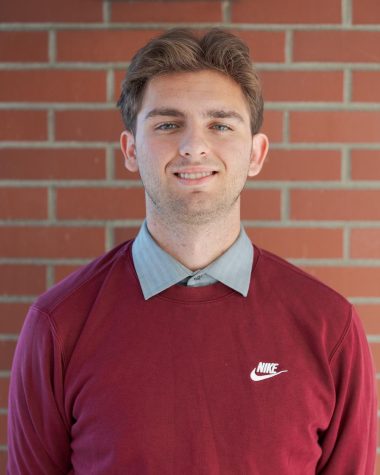Long road ahead
January 7, 2021
When the announcement of a working vaccine was made on all the major news outlets and networks I was filled with joy and relief. We finally had a path through the inescapable dark forest of COVID-19. I began to dream of going to crowded baseball games, hugging random people, and living life with a joyous and welcoming exuberance that has not been possible in the nerve-racking environment produced by a pandemic. It was after this dream passed that the true reality of our road ahead hit me. A road that is both dark and invigorating in its difficulty and opportunity.

Once COVID-19 is behind us, we will be left with the daunting task of rebuilding our society. Personally, I believe there are two main issues we must address in order to make the post COVID world one we can all enjoy and thrive in. The re-establishment of interpersonal relationships, and the salvaging of public discourse.
According to the CDC, 40% of US adults reported having issues with mental health or substance abuse in the month of June. Suicide rates in the second quarter of 2020 were up three times from the same time period in 2019. COVID-19 has forced us to become a sanitized and fearful society. While I agree that much, if not all of it, was necessary to save lives from the disease, we cannot ignore the adverse effects. In fact, we must let these adverse effects motivate us to return to a life of joyful interpersonal connection as soon as possible. My biggest fear about this pandemic is that somehow it will lead to a permanent fear of crowds and physical contact. When I think of a world permanently shrouded in social distancing measures, I feel a deep sense of dread come upon me.
This is why, once things are deemed safe, we must passionately and obsessively insist on returning to crowded restaurants, meeting new people, sharing hugs with friends and family, packing gyms and stadiums for sporting events, and allowing college students the chance to crowd into each other’s dorms for sweaty movie nights and video game parties. We must insist that life returns to normal. We cannot allow this pandemic to permanently lock us in a state of fear, because doing so would strip life of some of its joy and meaning.

The next grand issue we must tackle in the coming months and years is much more broad and all-encompassing. We have to learn how to communicate with each other again. I am talking about canceling cancel culture. I am talking about encouraging people to have conversations with people with who they disagree with. I am talking about ending the partisan bickering and hatred, and actually embracing the art of public discourse. Social media has forced us into bubbles, which have reignited deep and terrible tribalism. This is no way to operate a society, but it’s a great way to start a civil war. We must take it as a righteous duty to have conversations with people of other points of view and walks of life. We are missing empathy and space for discussion. We have ceased trying to understand each other or hear each other out, and have instead taken the far easier and damaging approach of shunning all we deem different. There is no greater example of this issue than the events that recently occurred on January 6 at the capital. The people who committed treason and stormed the congressional chambers did so operating in a political vacuum. They rejected facts, and refused to see other points of view. Without public discourse, more extremists like this will pop up.
Noam Chomsky once said, “If we don’t believe in free expression for people we despise, then we don’t believe in it at all.” This is why censorship and cancel culture is so dangerous. The moment we begin to call for the removal of opinions we disagree with, we begin to slip down a slippery slope that leads us to a society with no public discourse or free expression, one where tribalism and extremism from both ends of the spectrum reign. Censorship does not defend against extremism. Instead, it gives extremists a platform. It gives them the chance to question reality and truth, and claim wrongdoing. It creates political martyrs.
Whether it means diversifying our social media following, deleting it altogether, or just allowing ourselves the chance to discuss things with people from other backgrounds and ideologies, we must embrace open debate and dialogue once more. It doesn’t mean you have to agree with people from the other side or even be their friend, just be willing to listen. That’s what covering news is all about. Letting both sides have space to express themselves and let the information speak for itself.

If we do these two things, I believe we can turn the 2020’s into the greatest decade in human history. A decade of hugs and cheering crowds. A decade where expression is free and common sense dialogue allows us to create real-world innovations to defeat our most daunting challenges. A decade where political disagreement does not mean outright hatred. A decade where our incredible technological innovations bring us together instead of tearing us apart.
So in the near future feel free to corner me in the hall or call up my phone so that we can have a discussion. Whether you are a communist, socialist, libertarian, or a conservative, I’d be happy to exchange opinions and notes. And when we are all vaccinated, please come up and give me a hug. Let’s make the world a better place, we have the power to do it.


























































































Fred Morrison • Jan 9, 2021 at 1:15 pm
Excellent article, Mr. Morrison. I enjoyed the first part dealing with the effects of the virus on our lives. I am in complete agreement with the second part of the article. We must listen to each other, not “cancel” views we do not like. If only there was a neutral and accurate source of facts. It is journalists that should strive to provide honest and unbiased reporting. Thanks for the insightful article.